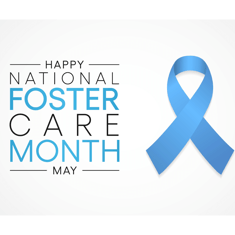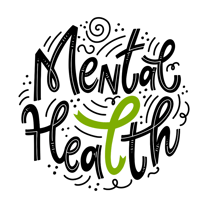Celebrating Foster Care and Mental Health Awareness Month
Foster Care Awareness Month is probably our favorite month of the year. Everyone is talking about how they can support foster children!
It’s a time that prospective foster parents and people outside of foster care can learn more about the field we are so passionate about. Multiple organizations report information and share stories about foster children, social workers, and the program. This year’s particular theme is Foster Care as a Support to Families, Not a Substitute for Parents.
According to the US Department of Health and Human Services Children’s’ Bureau this year’s theme:
“Highlights the ways the child welfare system and the legal community can authentically engage youth in permanency planning and support the development of meaningful connections to promote a child welfare system that truly strengthens families”
Mental Health Awareness Month
As a foster child, these kids and teens are removed from their friends and family and what is familiar. Then they face a new home, school, and routines. Depending on how long a child has been in foster care or their specific situation, they may even be required to attend court hearings. All of this can, understandably, take a toll on their mental health.
One of the most critical ways foster parents, social workers, and others who engage with foster children can aid in their mental health is by helping them build resiliency. As much as possible, we want them to grow stronger through their circumstances and keep them from being overwhelmed and consumed by their trauma.
Current State of Mental Health for Foster Children
Foster children have likely experienced various forms of abuse, neglect, and trauma. Some of the common mental health issues that result from these experiences are PTSD, panic and anxiety disorders, depression, and drug/alcohol abuse.
According to the Psychiatric Times, almost 50% of foster children ages 2-14 were diagnosed with clinically significant mental health issues. Other estimates state that 80% have some form of mental health issue. These are not exclusive to certain ages and have shown up in children under six years old.
The National Conference of State Legislature (NCSL) confirms that children in foster care have higher rates of mental illness than the general population. They also report that 3.6% of the adults who grew up in foster care struggle with drug dependence while only 0.5% of the general adult population does.
The management of children in foster care’s mental health is limited unfortunately. In fact, the American Academy of Pediatrics calls mental health issues the “largest unmet health need for children and teens in foster care.”
Deciding Treatment
We know children and teens in foster care need mental health services, however, on the larger scale, there aren’t enough resources or funding for their needs to be adequately met. The NCSL reported that children in foster care are prescribed medication for their mental illness at a higher rate than their non-foster care peers.
Medication is a great way to treat one’s mental health issues, however, we want there to be a balance of medication, behavioral alternatives, and intervention practices. To be able to do that, more resources are needed.
There are also often conflicting ideas between the various parties that care for them on what the best treatment is. This is where a foster child has the amazing opportunity to be encouraged to advocate for themselves, which is a key component in their development.
Hope for Mental Health for Kids in Foster Care
Part of, if not one of the biggest parts of a foster parent’s job, is providing a safe and stable space for youth after or during a very traumatic part of their life.
We clearly know that there is a lot to overcome for children in foster care. But we also know they are strong, resilient, creative young people who are worthy of a good home and capable of a great things.
In short, we can’t protect foster children, or any child, from challenges in life, but we can equip them with resilience and prepare them for those hardships. They need structure, responsibility, and opportunities to see they can do and learn new things.
This philosophy outlined by the Jim Casey Youth Opportunities Initiative emphasizes:
- Competence and strengths, rather than maladjustment and deficits.
- Developing assets for young people exposed to risk, instead of the traditional approach of focusing on risk reduction.
- Fostering pathways to resilience, not just resilient behaviors and people.
- Interventions that focus on families, schools, and communities as a way to increase developmental assets, expanding the more limited traditional approaches to asset building.
We then build on that philosophy by providing opportunities for the foster child to choose into a positive mindset and begin changing those neuropathways.
The concept is also described in this video:
How You Can Help
By having a home where love, respect, and dignity are centric, we can create a perspective for a kid to see themselves positively and have that view translate other areas of their life like school, friend groups, sports, etc. When their self-esteem is improved, they can better control their emotions and how they react in life.
One of the biggest lessons to note is that no child is ever too far gone when it comes to their mental health. Youth is a time of growth and change and being in a stable home is a critical foundation of that. We believe in the inherent strengths that are unique to each child and want them to be able to grow into them.
Every child in foster care deserves someone to believe in them and cheer them on as they grow and support them through their struggles. We’d love to speak with you further about how you can help young children and teens grow and heal so they can become the best versions of themselves and equipped with the resiliency to live a full live.
For more information about our programs and how we can help, visit our website or contact us today.


